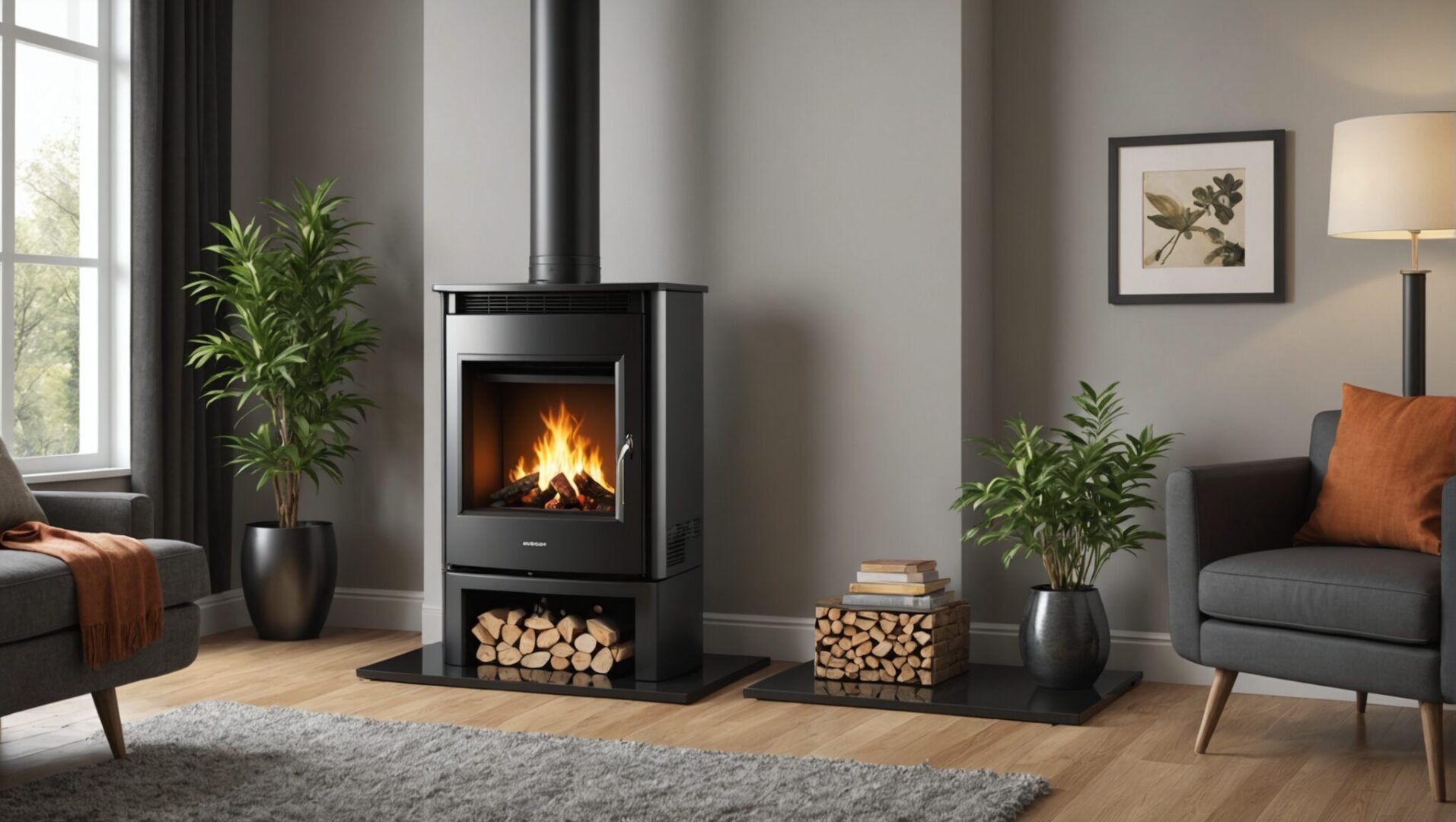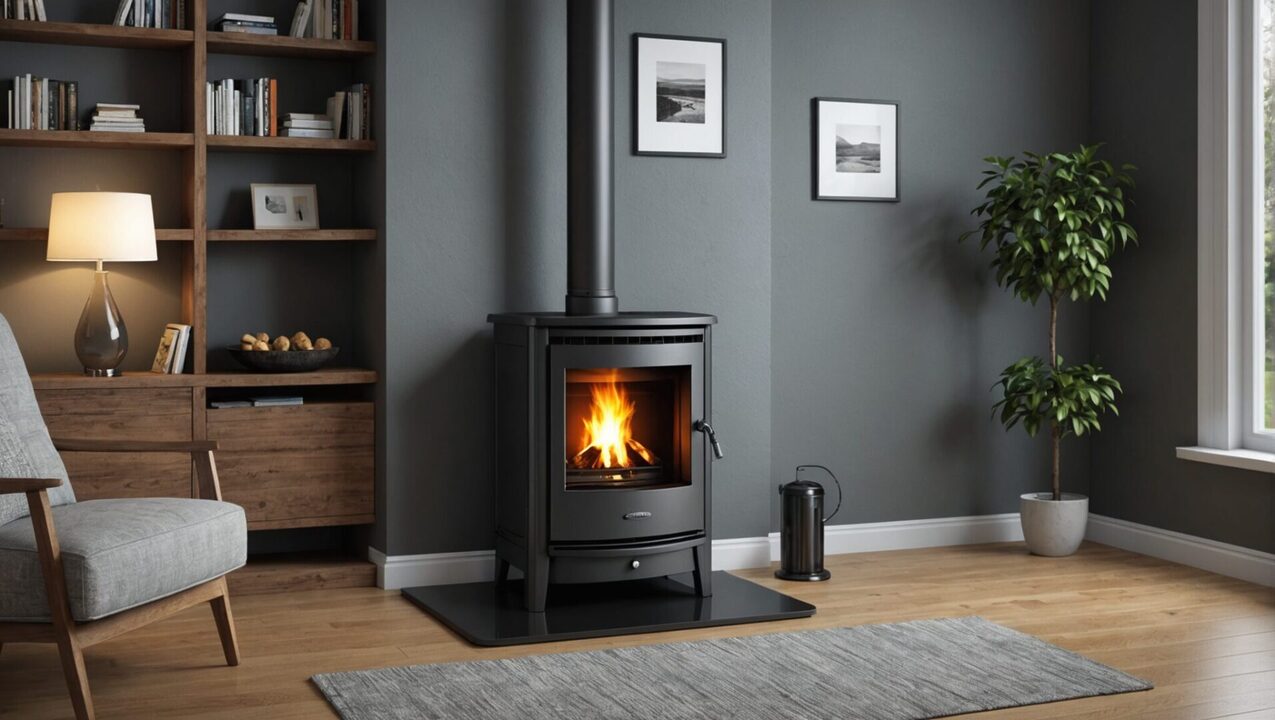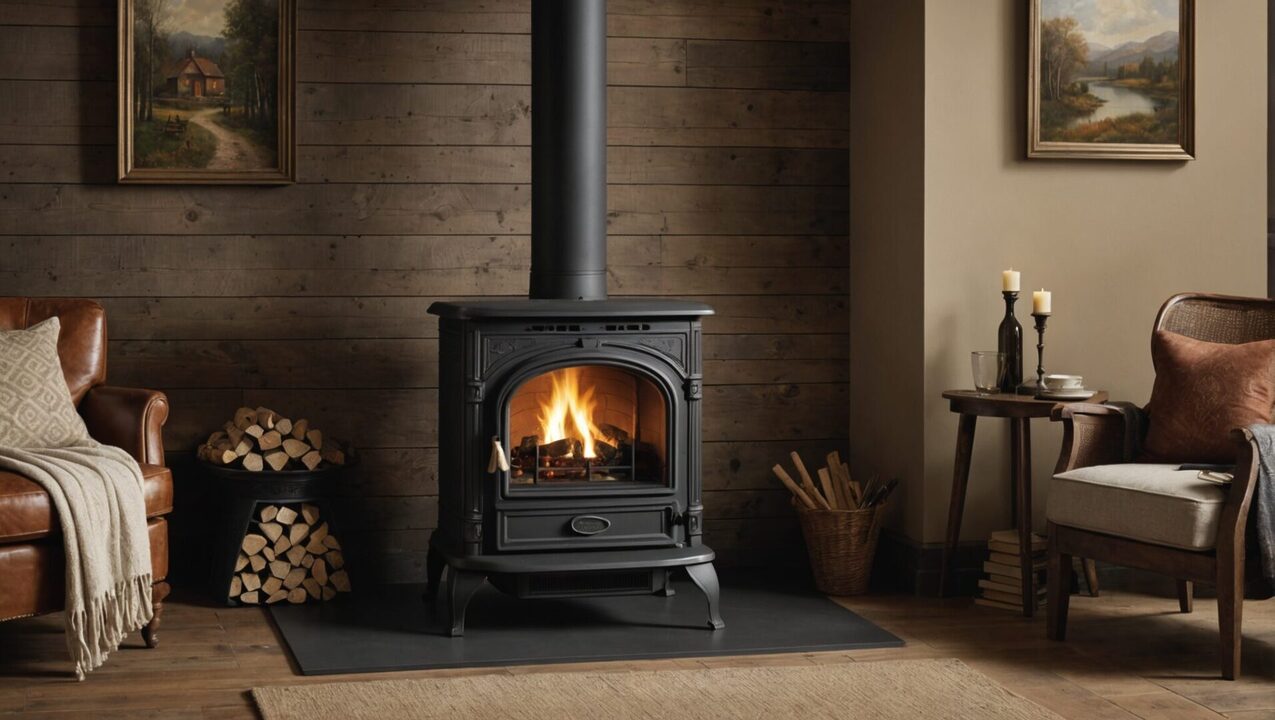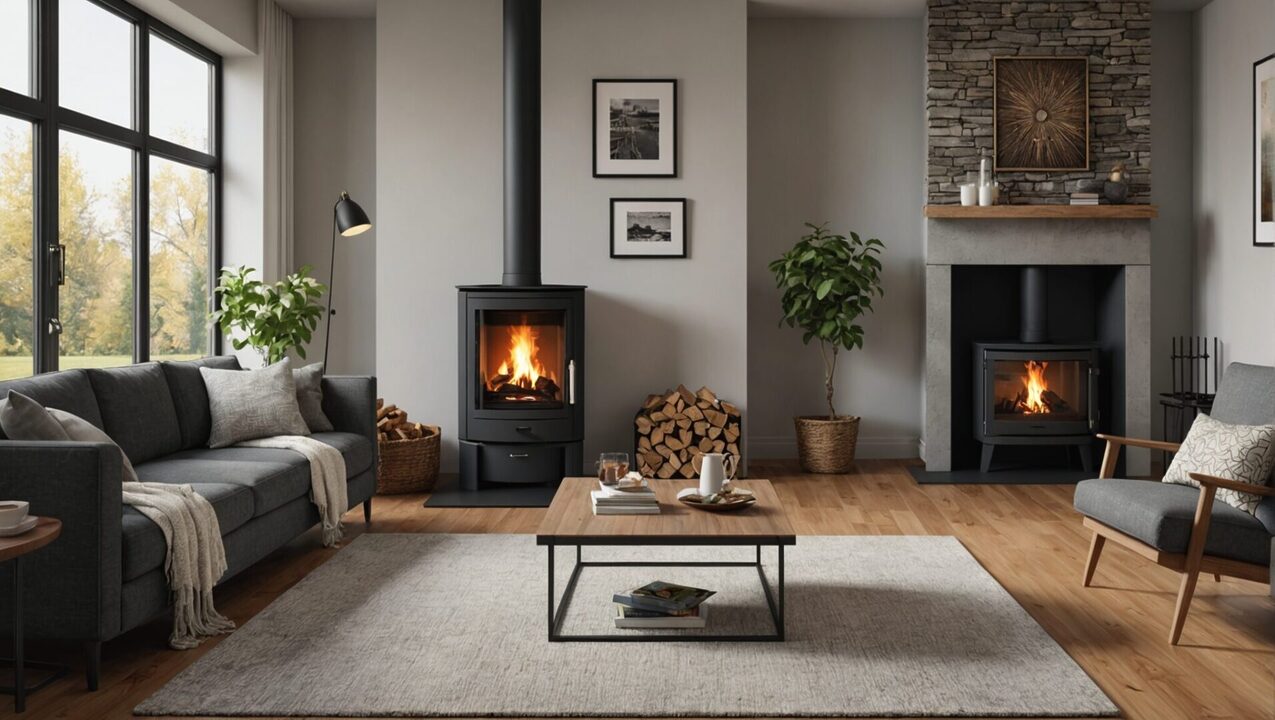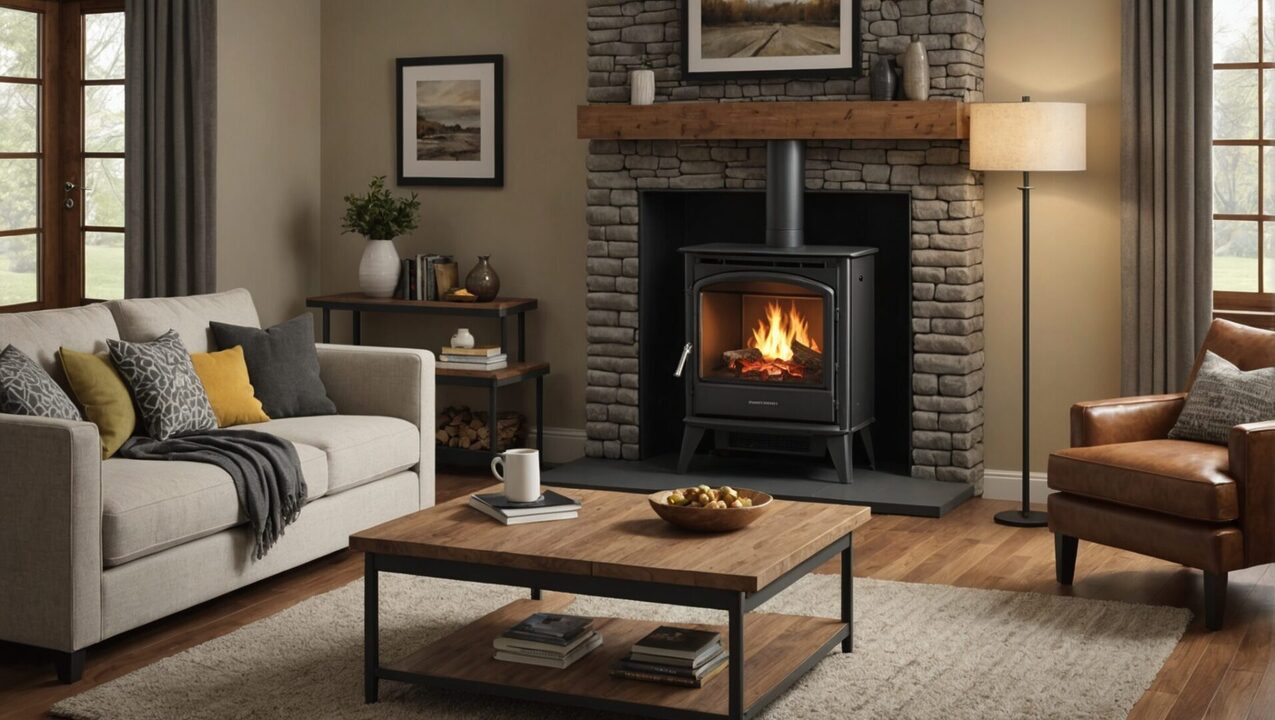THE hydro pellet stove, also known as boiler pan, stands out from other types of pellet stoves by its ability to heat water, thus allowing it to be integrated into a central heating system with radiators or a heated floor. Unlike convection pellet stoves which mainly diffuse heat through the air, the hydro stove releases part of its heat to the water, while also radiating the air, thus offering dual functionality. With powers varying from 2.8 to 10.5 kW for water and 1.4 to 3.3 kW for air, this type of stove is ideal for efficient heating and integrated into the hydraulic network. Her yield high, often around 91%, makes it a wise choice for a sustainable heating and economical.
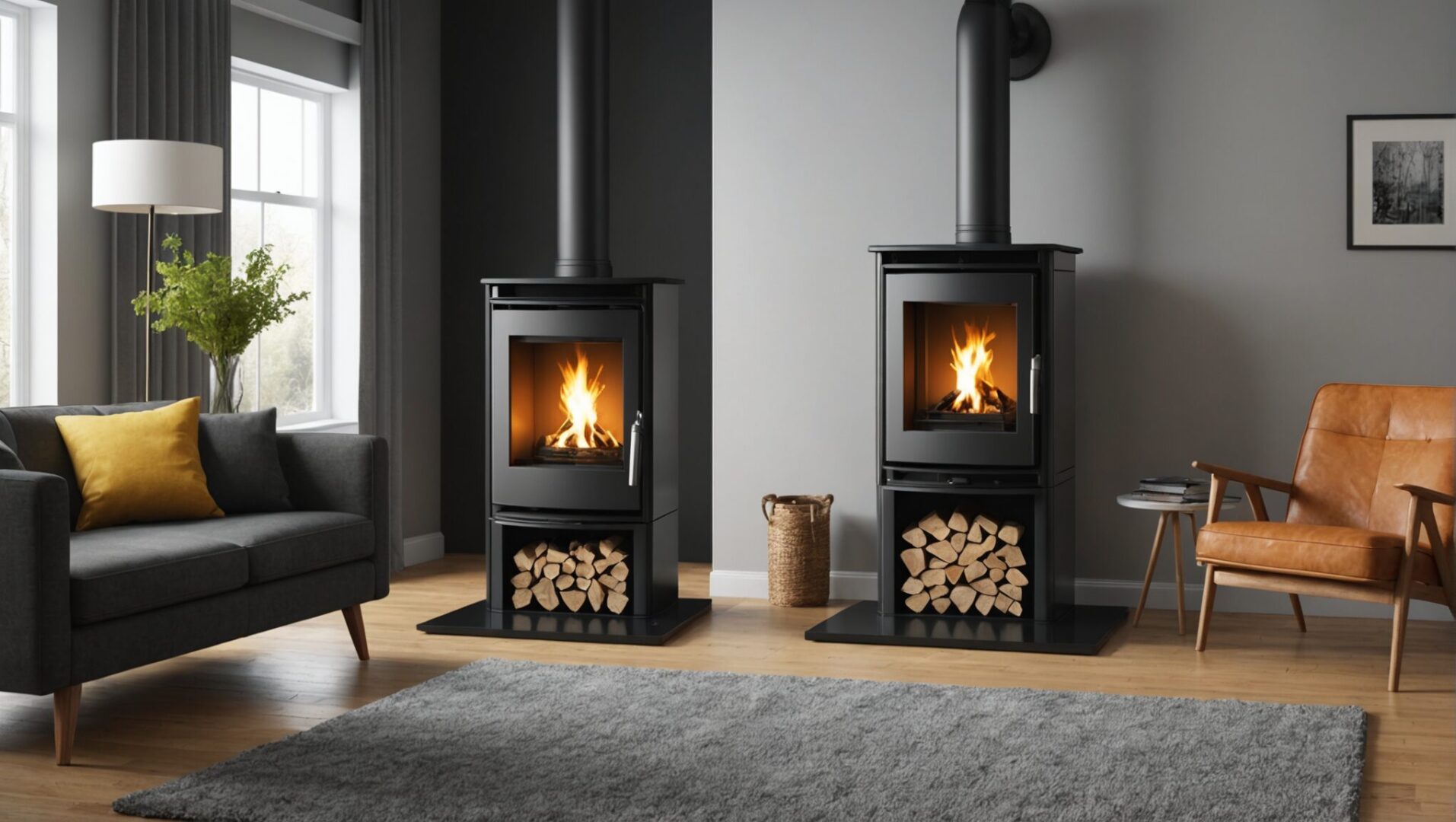
The choice of a heating system is crucial in our quest for comfort and energy efficiency. Among the options available, the hydro pellet stove stands out clearly. But what makes it so special compared to its air counterparts? Let’s discover together the characteristics that define this innovative device.
Types of pellet stoves
Before diving into the specificities of hydro pellet stoves, it is appropriate to explore the various types of pellet stoves available on the market. The choices are mainly divided into two categories: air pellet stoves and hydro models.
Air pellet stoves
Air pellet stoves are designed to heat the air in the room in which they are located. Their operation is based on a convection system which quickly diffuses ambient heat. Simple and effective, this type of stove is perfect for small spaces or houses with little or no insulation. However, it is limited in scope, often requiring multiple units for optimal heating in larger environments.
Hydro pellet stoves
On the other hand, the hydro pellet stove, also known as boiler pan, goes beyond this simple air heating function. It allows you to heat water which can be used to supply radiators or even systems of heated floor. It is this capacity that broadens its scope of application, making this type of stove more suitable for homes equipped with central heating or thermal conductivity systems.
Sur le même sujet :
How a hydro pellet stove works
The operation of a hydro pellet stove is based on the combustion of wood pellets, which produce heat. This heat is then transferred to a heat exchanger in the stove, allowing the water circulating in the heating circuit to be heated. This method has many advantages.
Thermal efficiency
A hydro pellet stove displays a yield notable, usually around 90% or more. This level of efficiency means that most of the energy contained in the pellets is converted into useful heat. In fact, the heat is transported throughout the house thanks to a hydraulic network, allowing uniform and pleasant distribution.
Energy savings
Hydro pellet stoves are often praised for their abilities to reduce heating costs. By using wood pellets, a renewable resource, they help to reduce dependence on fossil fuels. Additionally, their ability to integrate with existing systems increases their appeal to energy budget-conscious homeowners.
Sur le même sujet :
Advantages of hydro pellet stoves
Installation versatility
Another notable advantage of hydro stoves is their versatility in terms of installation. Being capable of supplying a central heating system, they can be placed in various structures, from old houses to recent constructions. They also prove to be compatible with pre-existing heating systems, providing a viable solution for those looking to upgrade their system.
Thermal comfort
Thanks to their water heating capacity, these stoves provide unparalleled thermal comfort. The gentle heat diffused by the radiators or through the heated floor eliminates the inconvenience of the intense and dry heat of air stoves. Users often report a pleasant ambient atmosphere without sudden temperature variations.
Sur le même sujet :
Disadvantages of hydro pellet stoves
Initial investment cost
Initial investment for a hydro pellet stove is generally higher than for standard air models. Installation costs, including necessary modifications to the existing heating system, can also represent a significant investment.
Care and maintenance
Another point to take into account is the need for a interview regular. Like any heating device, hydro pellet stoves require constant vigilance to ensure optimal efficiency. The accumulation of ash and the appearance of combustion require frequent cleaning, as does checking the condition of the heat exchanger.
Choose the right power
When you start purchasing a hydro pellet stove, it is essential to take an interest in the power necessary. This power will depend not only on the surface to be heated, but also on the insulation characteristics of your home. A model that is too powerful would not only be superfluous, but could also lead to higher operating costs.
Power calculation
The calculation of the required power can be carried out with the help of a professional or through online simulations. As a general rule, it is often recommended to allow around 100 watts per square meter of surface to be heated. That said, every home is unique and requires careful analysis. It is imperative to call on a specialist who can assess your specific needs.
Accessories to optimize a hydro pellet stove
To optimize the operation of a hydro pellet stove, several accessories can be integrated. Among them, one temperature control system allows heating to be modulated according to real-time needs. Other additions, such as a hot water tank, can also enrich your home’s energy system.
Power regulation
Having a good regulation system allows you to adjust the power of the device according to heating requirements. Some installations even go so far as to connect to smart thermostats, thus increasing the daily comfort of use and the overall efficiency of the system.
Frequently asked questions about hydro pellet stoves
What is the lifespan of a hydro pellet stove?
The lifespan of a hydro pellet stove may vary depending on use and maintenance. In general, by following the manufacturer’s recommendations and carrying out regular cleaning, these devices can last between 15 and 20 years.
Should we have a smoke exhaust duct?
Yes, all pellet stoves, including hydro models, require a exhaust duct to eliminate fumes generated by combustion. It is important to respect current standards when installing this crucial element.
Consider installing a hydro pellet stove
Before making a decision, you should evaluate various parameters, such as your budget, your heating needs and the space available to you. The question of return on investment must also be considered in the long term.
The growing popularity of hydro pellet stoves should not overshadow other equally relevant options. Turning to alternative solutions, such as wood boilers or combined systems, can sometimes be wise, depending on the configuration of your home.
To enrich the debate, do not hesitate to share your experiences or questions about hydro pellet stoves in the comments below. Your insights can help other readers make an informed decision about their heating choice.
